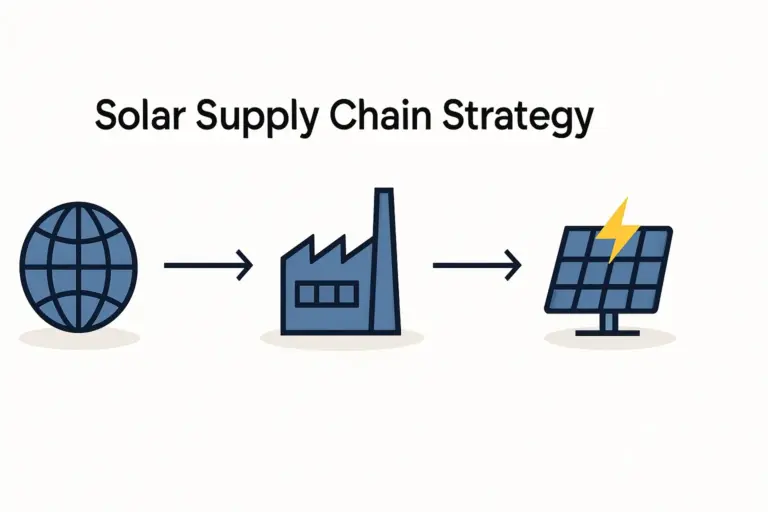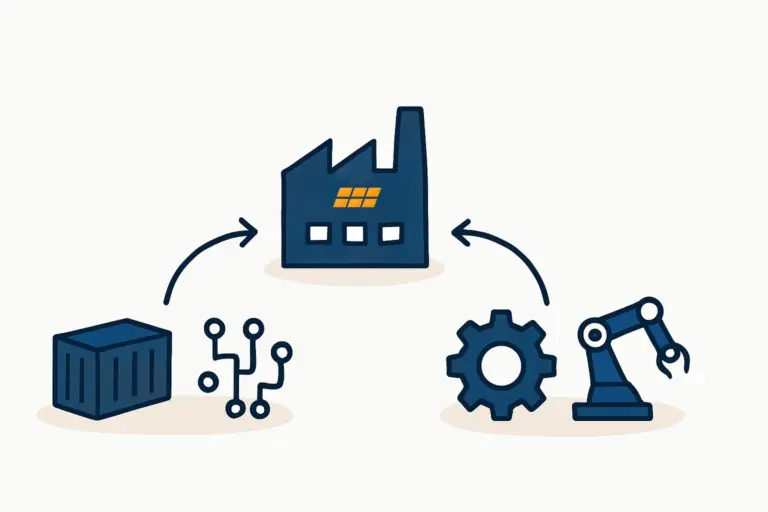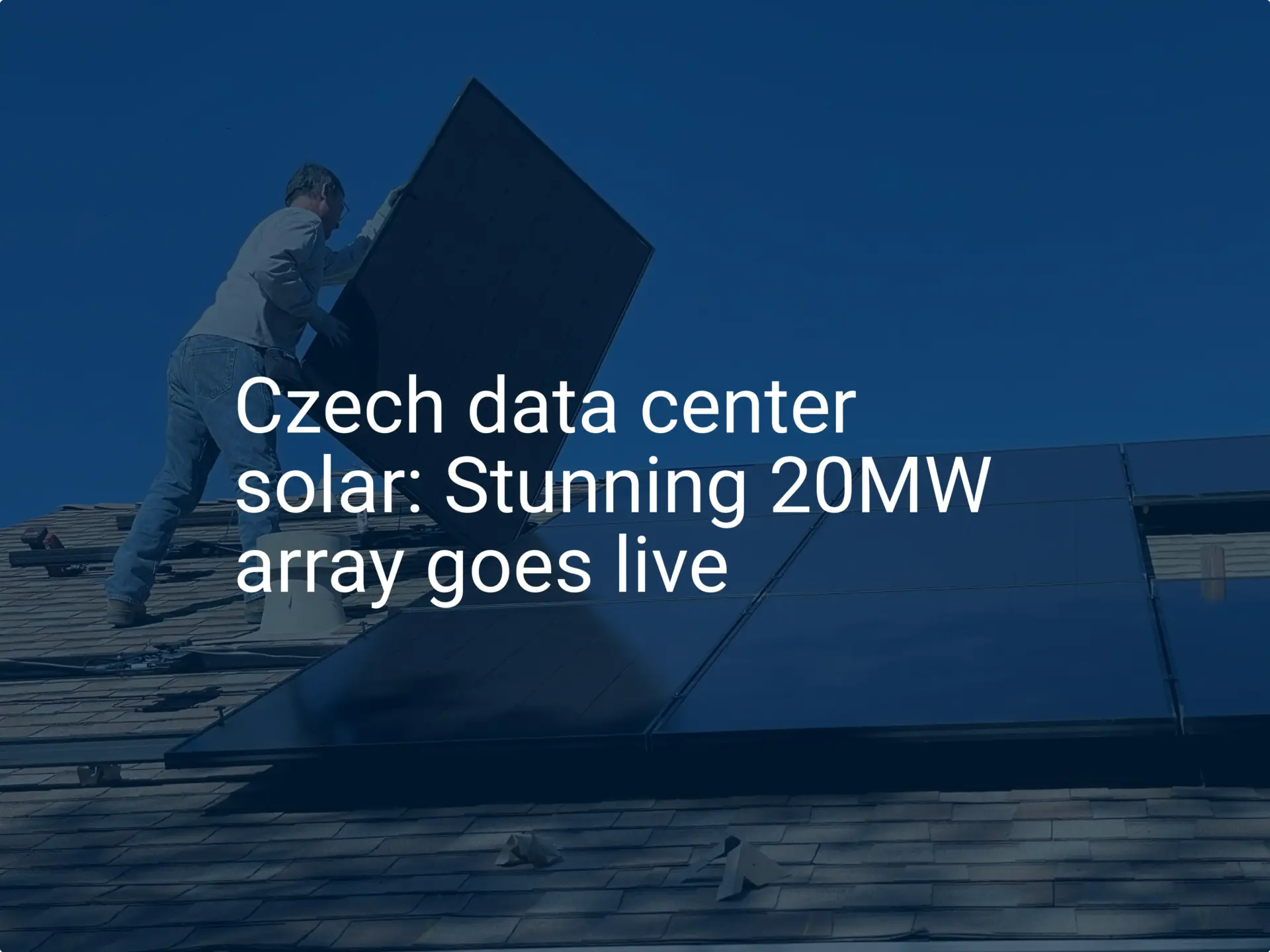Manufacturing Solar in the Czech Republic: Your Gateway to the EU Market
An international investor is watching the rapid growth of the European Union’s solar energy market. They see immense opportunity but are wary of the risks tied to transcontinental supply chains, from shipping delays to sudden trade policy shifts. Their primary question isn’t just how to enter this market, but how to build a stable, resilient business for long-term success.
This scenario highlights a critical trend in recent EU solar manufacturing news: the strategic value of local production. This article examines the compelling case for establishing a solar module factory in the Czech Republic—a location offering a potent mix of geographic, economic, and political advantages for accessing the lucrative EU single market.
Understanding the ‘Made in Europe’ Premium
For many years, the global solar industry has been dominated by manufacturing in Asia. However, recent global events have exposed the vulnerabilities of this model. European customers, from large-scale project developers to individual homeowners, are increasingly placing a premium on modules produced within the Union. This preference is driven by several key factors:
-
Supply Chain Resilience: Guaranteed delivery schedules—free from the risks of port closures or international shipping bottlenecks—provide a powerful competitive edge. Local production offers predictability in an uncertain global environment.
-
Quality and Transparency: European manufacturing standards are among the most stringent in the world. A ‘Made in EU’ label serves as a trusted mark of quality, regulatory compliance, and ethical labor practices.
-
Reduced Carbon Footprint: Sourcing modules locally significantly reduces emissions associated with transportation, an important factor for environmentally conscious buyers and projects aiming for the lowest possible carbon footprint.
Any comprehensive solar module manufacturing business plan must account for these qualitative advantages, which translate directly into greater market access and brand value.
Navigating the EU’s Evolving Regulatory Landscape
The European Union is actively shaping a policy environment that encourages and protects the domestic manufacturing of green technologies. For an investor, understanding these regulations is not just about compliance—it’s about seizing a major market opportunity.
The Net-Zero Industry Act (NZIA)
At its core, the NZIA is the EU’s strategic plan to bolster its manufacturing capabilities for key clean technologies. The act sets an ambitious target: by 2030, the Union aims to produce at least 40% of its annual deployment needs for technologies like solar PV. This policy sends a clear signal to the market that there will be structural support and demand for locally produced modules. Public tenders and subsidy programs will likely favor manufacturers who help meet this goal, creating a distinct advantage for factories located within the EU.
Carbon Border Adjustment Mechanism (CBAM)
CBAM is a landmark policy designed to prevent ‘carbon leakage’—a situation where EU industries move to countries with less stringent climate policies. In simple terms, it will function as a tariff on imported goods based on the carbon emissions generated during their production.
Solar modules manufactured in regions that rely heavily on coal-fired power will face higher import costs under CBAM. A factory in the Czech Republic, benefiting from a more balanced and progressively greener European energy grid, can produce modules with a lower embedded carbon footprint. This creates a cost advantage once CBAM is fully implemented, turning sustainability into a direct financial benefit.
Potential Tariffs and Trade Policies
Discussions about trade defense measures, including potential tariffs on solar products from outside the EU, are ongoing. While the outcomes are uncertain, establishing a manufacturing base within the single market effectively insulates a business from such risks. It transforms a potential threat for an importer into a protective measure for a local producer.
Why the Czech Republic is a Prime Location for Solar Manufacturing
While the benefits of EU production are clear, the choice of location is critical. The Czech Republic presents a particularly strong case for entrepreneurs entering the solar manufacturing space.
Strategic Geographic Position
Located in the heart of Europe, the Czech Republic offers exceptional logistical access to the continent’s largest solar markets. Its proximity to industrial powerhouses like Germany and rapidly growing markets in Poland, Austria, and beyond significantly reduces transportation costs and delivery times. This central location allows a manufacturer to be far more responsive to customer demand across the continent.

Skilled Industrial Workforce
The country has a long, respected heritage in engineering, automotive, and advanced manufacturing. This history has cultivated a deep pool of skilled technical labor and experienced management personnel. For a new venture, access to a workforce already familiar with industrial processes and quality control standards can accelerate the ramp-up phase and ensure operational excellence. While selecting the right solar panel manufacturing machines is vital, a skilled workforce ensures they operate at their full potential.
Favorable Energy Mix and Costs
Compared to many of its Western European neighbors, the Czech Republic offers more competitive industrial energy and labor costs. This balanced cost structure, combined with a reliable energy grid, makes it possible to produce high-quality modules at a price that can compete effectively across the EU, especially when factoring in the future costs imposed on imports by CBAM.
Government Support and Investment Climate
As an EU member state, the Czech Republic is aligned with the Union’s strategic goals. The latest Czech solar energy news reflects a government that encourages foreign direct investment, particularly in high-growth, strategic sectors like renewable energy. Investors can often benefit from a stable regulatory framework and various investment incentives aimed at fostering industrial growth.
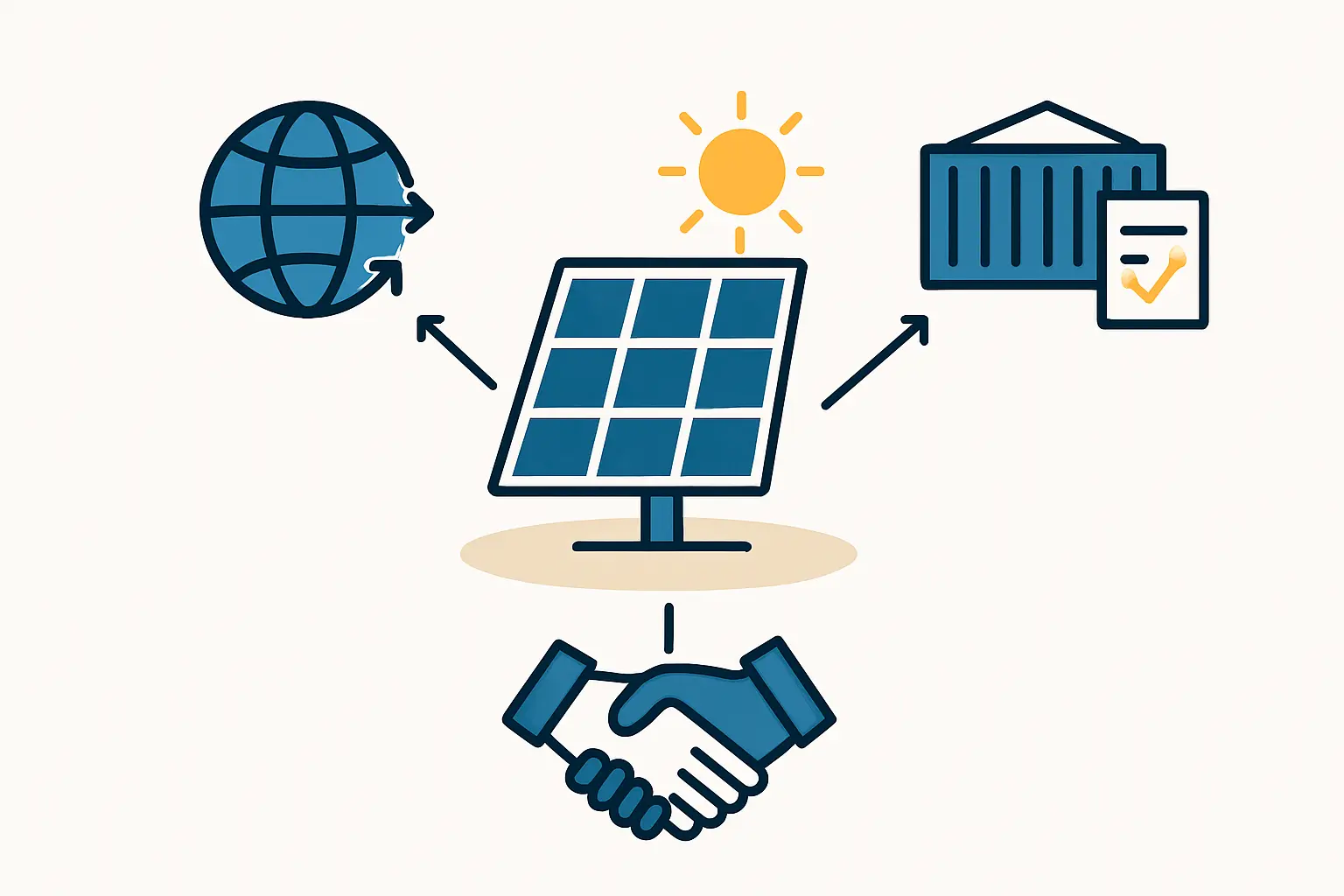
The Business Case: A Summary of Advantages
Drawing on experience from J.v.G. turnkey projects, establishing a solar factory in the Czech Republic delivers a multi-layered competitive advantage:
-
Unrestricted Market Access: Operate freely within the EU single market, eliminating customs and trade barriers.
-
Regulatory Insulation: Mitigate risks associated with import tariffs, trade disputes, and carbon pricing (CBAM).
-
Enhanced Brand Value: Leverage the ‘Made in EU’ label to appeal to customers who prioritize quality, sustainability, and supply chain security.
-
Logistical Efficiency: Benefit from lower shipping costs and faster, more reliable delivery to key European customers.
-
Operational Excellence: Capitalize on a skilled industrial workforce and a competitive cost base.
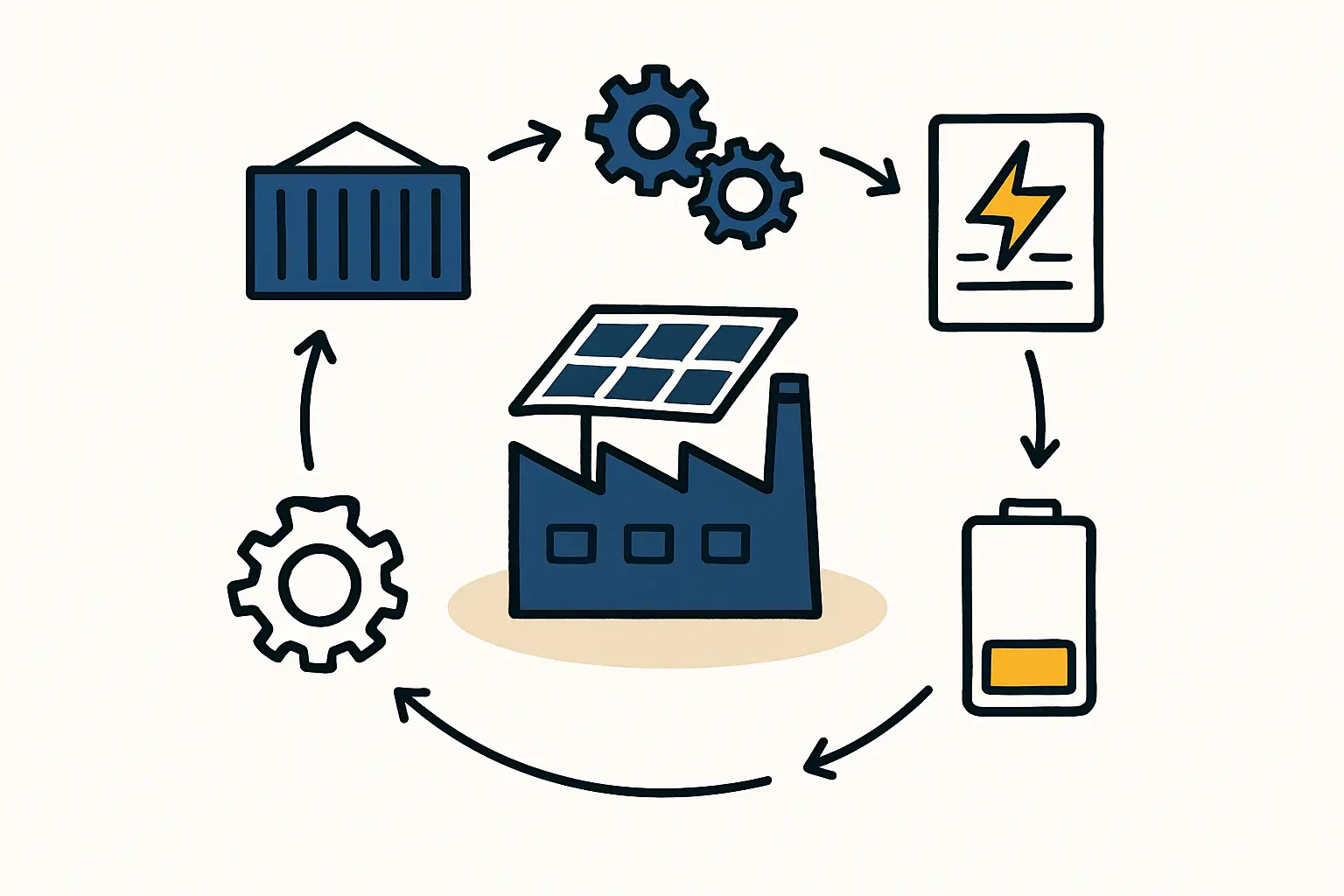
Frequently Asked Questions (FAQ)
What is the typical investment for a small-scale solar factory in the Czech Republic?
The investment required depends heavily on the level of automation and the target production capacity. For a 20–50 MW semi-automated line, initial investments typically range from a few million euros upwards. A detailed financial model is a crucial first step in the planning process.
Do I need a technical background to start a solar factory?
No, a technical background is not a prerequisite. Many successful factory owners come from business or finance. The key is to partner with experienced technical consultants and turnkey providers to manage the engineering, procurement, and commissioning phases—precisely the guidance that platforms like pvknowhow.com provide. A clear understanding of how to start a solar panel manufacturing business from a process perspective is more critical than being a PV expert.
How does manufacturing in the Czech Republic compare to other EU countries?
While countries like Germany have a larger existing solar industry, the Czech Republic offers a compelling blend of lower operational costs, a strong industrial base, and an ideal central location that is difficult to match. It represents a strategic balance between cost-effectiveness and premium market access.
What are the main challenges to consider?
Any new industrial venture comes with challenges. Key considerations include navigating local permitting and regulatory processes, recruiting and retaining a top-tier management team, and securing initial offtake agreements with customers to ensure demand for the factory’s output. Thorough due diligence and local partnerships are essential.
Planning Your Entry into the EU Solar Market
The convergence of market demand for resilient supply chains and supportive EU policies has created a pivotal moment for solar manufacturing in Europe. The Czech Republic stands out as a strategic location that allows an investor to build a competitive and sustainable business shielded from the volatility of global trade.
Turning this concept into an operational facility requires careful planning and expert guidance. For any serious investor, the next logical step is to develop a detailed feasibility study and business plan to map out a clear path to profitability and success.



